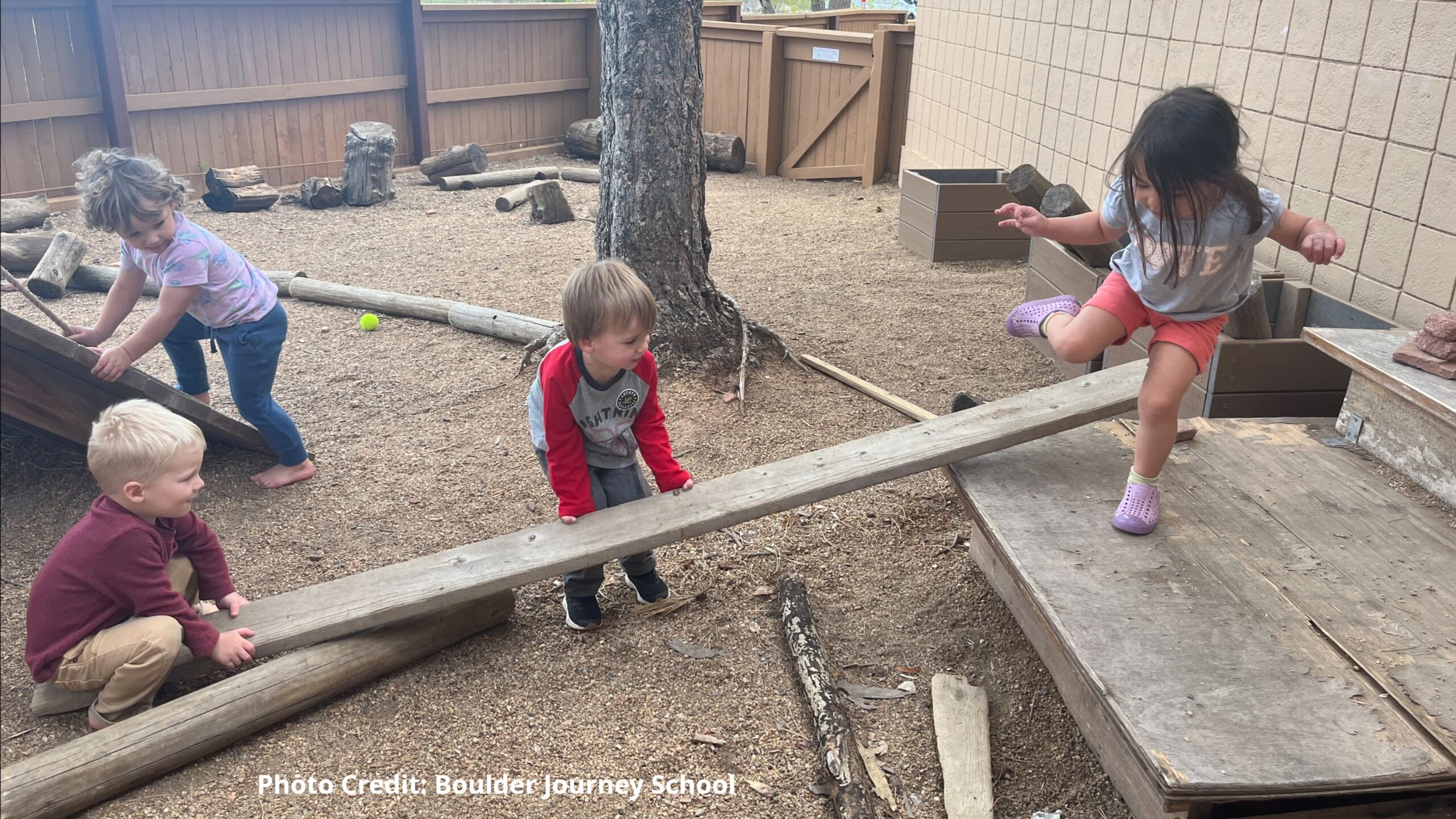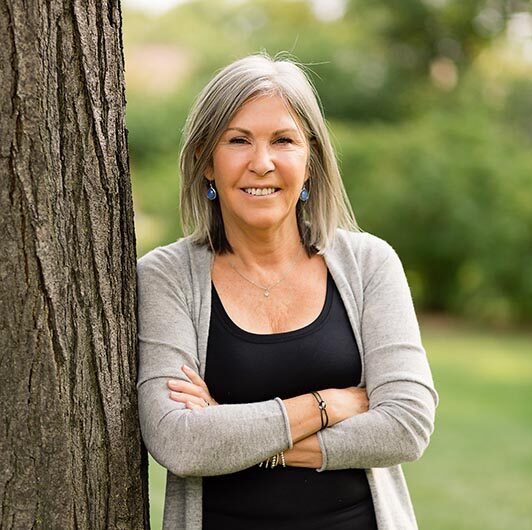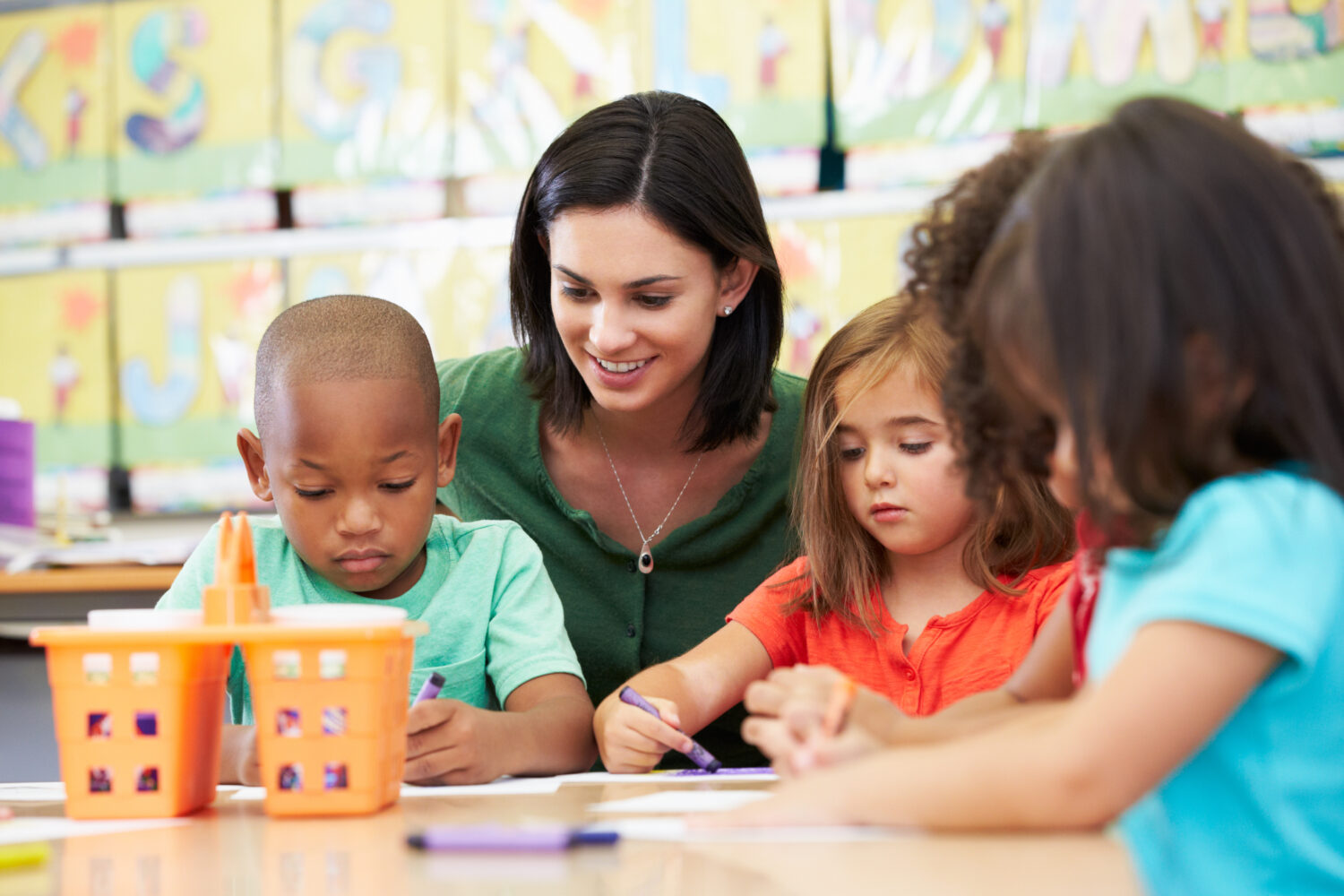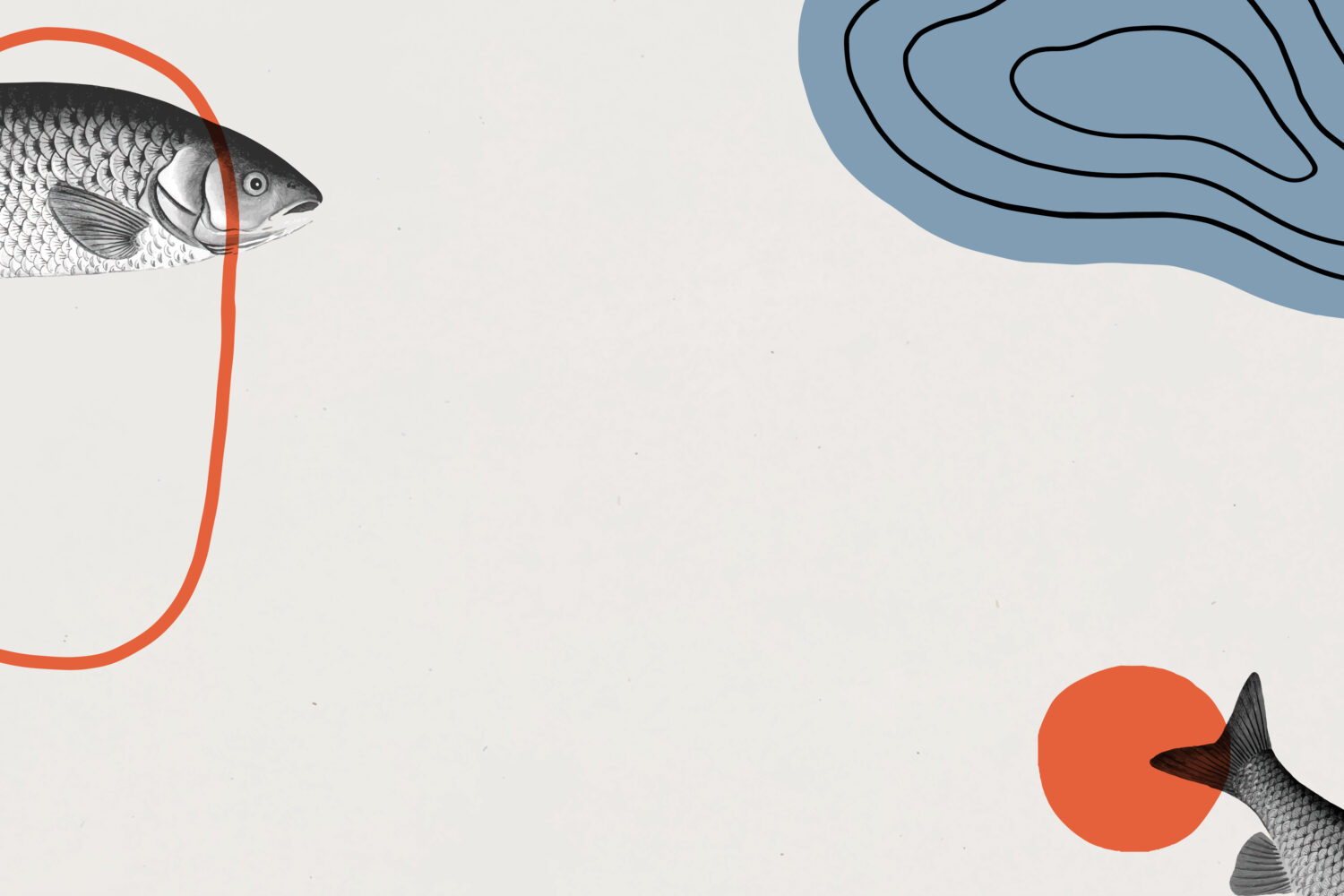Guest blog post authored by Lori Ryan, Ph.D. Clinical Associate Professor at the University of Colorado Denver School of Education and Human Development
As an early childhood faculty member at University of Colorado Denver’s School of Education and Human Development, I recently had a wonderfully thought-provoking opportunity to co-create a new course. The course, Learning Through Play, was co-designed with graduates of our masters program in partnership with Boulder Journey School. While our early childhood program area has courses focusing on learning alongside children, inquiry and curriculum design, we were lacking a course focused on the concepts and practices of learning through play. This group of students were ideal collaborators since their Masters’ capstone projects centered play in children’s lives within their diverse educational settings in community based early childhood and in public schools across the nation. They found not only burgeoning resources on the topic of play, but more importantly they uncovered their own and others’ questions as to why play opportunities for children are not common and in some cases missing altogether. We are witnessing a re-assessment of the value of play in children’s lives. There is a re-awakening of children’s right to play.
“We are witnessing a re-assessment of the value of play in children’s lives.”
In 1989, global leaders made a historic commitment to the world’s children by adopting the United Nations Convention on the Rights of the Child–an international agreement on childhood. Article 31 ensures that every child has the right to rest, relax, play and take part in cultural and creative activities. It continues to disappoint many that the United States has not ratified the Convention on the Rights of the Child, one of only two countries globally not yet to ratify. This may partially explain why we are challenged here in the US to see play or playful learning promoted. Another reason, undoubtedly, is the marginalization of play from the daily lives of children in favor of approaches that limit children’s experiential learning and creative expression. These approaches tend to prioritize learning through scripted curriculum and teaching to the test.
Marianna Souto-Manning, at the time professor at Columbia University, and now the President of Erikson Institute has addressed this directly. Souto-Manning is one of the early childhood teacher education profession’s lead socially just educators. Souto-Manning invites us to address the issue of children’s right to play through an anti-racist, equity lens. In their article, published in 2017 entitled “Is Play a Privilege or a Right? And What’s Our Responsibility? On the Role of Play for Equity in Early Childhood Education,” Souto-Manning suggests that “in the name of rigor and adult measures of educational success, play has been nearly extinguished from educational research and practice” and further illuminates the tension between play as a privilege for children from the dominant group and play as denied to many. “…rigor and academics, both of which have been used as racist ways of keeping the status quo in place. That is, in low-income preschools and schools, we see mandates, which seek to standardize and manage. In wealthier preschools, we witness the possibilities of play unleashed.”
The racial divide in children’s access to play and playful learning is unacceptable. All children have the right to play. Along with my students, I continue to search for resources and ways to spread an unwavering message about the power of play in children’s learning. Play is re-emerging as a pedagogy for children’s learning and practitioners, researchers, school leaders, and decision makers are engaging in the conversations necessary to promote play as learning. This brings hope that playful learning will re-emerge across racially, linguistically and culturally diverse contexts. As we look at play as culturally, linguistically and racially just, we see that it has the great potential to nurture children’s dispositions and skills. This differs from rigorous standards-based approaches that just can not, given they are not differentiated for children’s unique identities and learning approaches. Play fosters children’s whole development beginning with their sense of self as a learner. And with that foundation, children thrive in their learning across all domains of development.
“This brings hope that playful learning will re-emerge across racially, linguistically and culturally diverse contexts.”
In my opinion, this is a hopeful time for play–one that holds promise for transforming our views and actions on learning. There are abundant and available resources, research and practices around play. Some of the organizations that are leading us in playful learning research and practice are found in the table below. I encourage you to search these websites to inspire community dialogue and action to promote playful learning for all children. I would welcome a conversation any time. Please reach out to me at Lori.Ryan@ucdenver.edu
| Lego Foundation | Building a world of playful learners Lego Foundation works to make society stronger – in Denmark and around the world. To do that they give children the chance to learn through play. Because play is powerful. When children experiment and discover, learning lasts. This website has many resources for families, practitioners, researchers and policy makers, including this white paper, Play facilitation: the science behind the art of engaging young children. |
| American Academy of Pediatrics, The Power of Play: A Pediatric Role in Enhancing Development in Young Children | Children need to develop a variety of skill sets to optimize their development and manage toxic stress. Research demonstrates that developmentally appropriate play with parents and peers is a singular opportunity to promote the social-emotional, cognitive, language, and self-regulation skills that build executive function and a prosocial brain. Furthermore, play supports the formation of the safe, stable, and nurturing relationships with all caregivers that children need to thrive. This paper offers a healthy perspective on play. |
| Harvard University Project Zero’s Pedagogy of Play | In 2015, the Pedagogy of Play (PoP) research project began investigating the nature of playful learning in schools. Funded by the LEGO Foundation, the project focuses on three core questions: Why do educators need a pedagogy of play? What does playful learning look and feel like in classrooms and schools? How do educators set up the conditions where playful learning thrives? This website has resources for educators and others, including a free e-book. |
| International Play Association | IPA is an international non-governmental organization founded in 1961. It provides a forum for exchange and action across disciplines and across sectors. IPA’s purpose is to protect, preserve and promote the child’s right to play as a fundamental human right. ~Article 31 of the United Nations Convention on the Rights of the Child IPA has members in close to 60 countries, and active groups including in the US. Their robust website holds an international view on the work to protect children’s right to play. |
| Foundation Reggio Children Play and Learning Research Project | Various projects of the Foundation Reggio Children offer international contexts where the expressive potential of play relates to various aspects of everyday children’s and adults’ life. Play, meant as a design, connective and research action can become an integral part of children’s and young people’s experience, encouraging the birth and development of ideas and projects, contributing to the development of complex and meaningful learning processes. Foundation Reggio Children, in collaboration with the Lego Foundation, is hosting Play.Explore,Research (PER) conferences around the world to promote play with the possibility of an upcoming conference hosted by University of Colorado Denver’s School of Education and Human Development in Denver, CO in 2025. |
| Four Accelerators to Ensure Every Child Enjoys the Right to Play | Corresponding to the inaugural International Play Day on June 11, 2024, UNICEF and UNESCO are calling on governments to prioritize four outcomes most likely to fulfill and accelerate progress to the right to play
|
keyTakeaways
-
There is a marginalization of play from the daily lives of children in favor of approaches that limit children’s experiential learning and creative expression. These approaches tend to prioritize learning through scripted curriculum and teaching to the test.
-
Play is re-emerging as a pedagogy for children’s learning and practitioners, researchers, school leaders, and decision makers are engaging in the conversations necessary to promote play as learning.
-
The racial divide in children’s access to play and playful learning is unacceptable. All children have the right to play.

